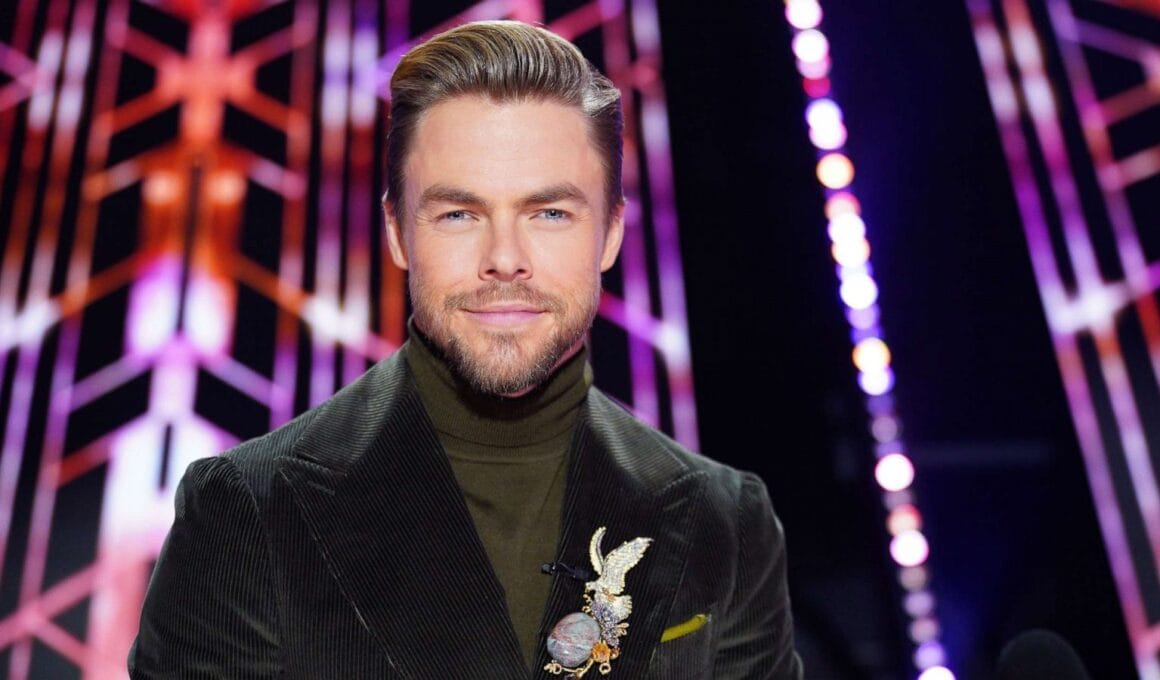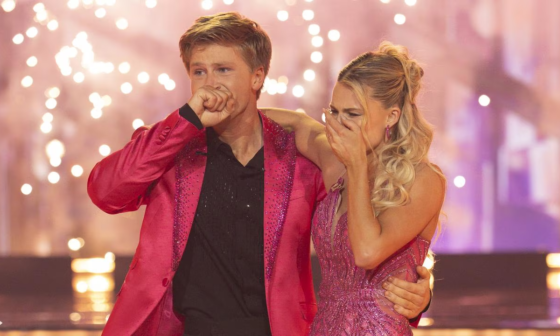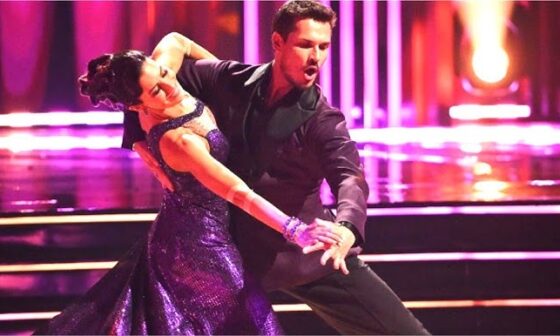The latest season of Dancing with the Stars has been filled with dazzling routines, shocking eliminations, and heated debates—but none have sparked more controversy than Derek Hough’s scoring of Robert Irwin. After awarding the young conservationist high marks for his latest performance, fans erupted online, accusing Hough of favoritism due to his history with Robert’s sister, Bindi Irwin, who famously won the competition years ago with Derek as her partner. What began as a celebration of Robert’s growth on the dance floor quickly escalated into a storm of criticism and speculation.
Social media became a battleground as viewers debated the legitimacy of Derek’s scorecard. Many fans claimed Robert’s rising popularity gave him an unfair advantage, with some suggesting his performance was overpraised compared to others in the competition. Others argued that Derek’s past with Bindi made it impossible for him to remain unbiased. Hashtags questioning the fairness of the judging trended throughout the night, putting Robert in the center of a controversy he never asked for.
What’s striking is how quickly admiration turned into suspicion. Robert Irwin has been a fan-favorite since joining the show, winning audiences over with his charm, determination, and family legacy. Yet, for critics, those same qualities became points of contention. Instead of focusing on the routine itself—praised for its technical precision and emotional storytelling—online chatter revolved around whether Robert was being “protected” by the judges, particularly Hough.
For days, Derek Hough remained silent, allowing speculation to swirl. His refusal to immediately address the issue only added to the intrigue, as fans wondered if the judge would stand by his scoring or attempt to walk it back. The silence from both Derek and the show’s producers fueled rumors, with some critics suggesting the network wanted to protect its breakout star from damaging scrutiny.

When Derek finally broke his silence, his words carried the calm authority that has defined his career. He addressed the backlash directly, making it clear that his scores were based on performance, effort, and artistry—not family ties or fame. “I judge what I see in front of me,” he explained. “Robert earned every point through his hard work, his growth, and the way he connects with the audience. Nothing else factored into my decision.”
His response shifted the narrative almost instantly. Many fans who had been critical began to soften their stance, acknowledging that Derek had always been known for fairness and integrity as a judge. His long career in dance and his reputation as a mentor gave weight to his defense, making it harder for skeptics to dismiss his explanation as damage control.
Robert himself remained mostly quiet during the uproar, choosing instead to let his dancing speak for him. Insiders say he was rattled by the accusations but found strength in focusing on rehearsals and upcoming performances. For Robert, the controversy became an unexpected test of character, forcing him to navigate public doubt while continuing to prove himself on the ballroom floor.
The debate also raised a larger question about the nature of Dancing with the Stars: can any contestant with a famous family name ever truly escape the shadow of bias? Robert’s situation highlighted the tension between celebrity legacy and individual merit, a challenge the show has grappled with for years. Even so, Derek’s defense made a powerful case that talent should remain the ultimate standard.
As the competition moves forward, both Derek Hough and Robert Irwin find themselves under sharper scrutiny than ever. Yet, if Derek’s words and Robert’s resilience are any indication, the controversy may ultimately strengthen their credibility rather than diminish it. By facing the storm head-on, Derek reminded fans that the spirit of the show is about celebrating artistry, courage, and growth—and those values will always shine brighter than backlash.




